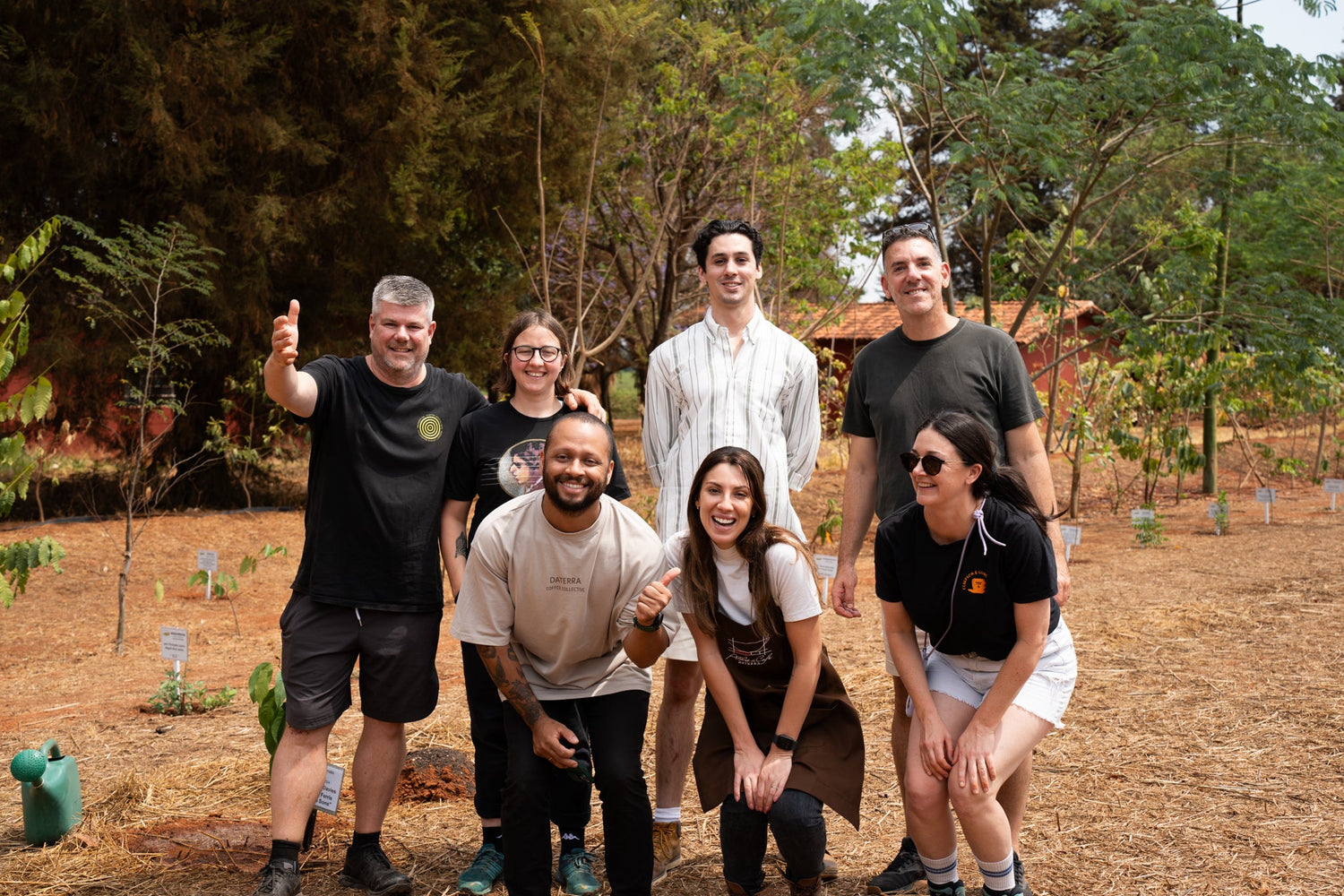This month, we released the Daterra 6 coffee processing box - a pioneering project to evaluate the impact of 6 different processing methods through a single coffee.
This was a collaborative project with industry leading producers Daterra in Brazil. You might recognise their name as the home of our much loved father of all espresso’s, The Baron.

For you, this project opens the doors to tasting the influence of processing. For Daterra, this project helped form valuable insights into the effects of climate change on coffee production in a region experiencing dramatic and sudden change in temperature and precipitation.
Here, we take a look at the ethos behind Daterra and explore the impact this project can have in supporting the continued production of excellent specialty coffee, amidst dramatic changes in climate.
Impact at Daterra
Daterra in Minas Gerais, Brazil is a unique coffee venture born in the 1980s of a desire to restore flora, fauna, soil and water springs in a region depleted by decades of cattle farming and avocado monoculture.
Located in the Cerrado region of Minas Gerais, Daterra Estate is far more than just a coffee farm. It’s a research-led, sustainability-focused operation constantly pushing the boundaries of what coffee can be. Their approach to selling coffee by cup profile rather than by variety—an idea inspired by Argentinian vineyards—offers greater flexibility for roasters and a more resource-efficient path for producers.

After decades of conscious work to improve biodiversity, an industry leading model of sustainable coffee production at Daterra continues to evolve and adapt in response to drastic climatic changes.
The Future of Coffee
We had the opportunity to visit Daterra in October 2024. This trip to Brazil was much more than an origin visit—it was a window into the future of coffee, shaped by innovation, sustainability, and bold experimentation. At the heart of it all was the Daterra 6 project: a pioneering exploration into how one coffee variety can express a diverse range of cup profiles through processing alone.
Using just one variety, Daterra has crafted six distinct cup profiles through different processing methods—from washed and pulped natural to honey and anaerobic. Each method requires varying levels of input, energy, and time, highlighting the balance between resource use and flavour creation.

Yet 2024 brought challenges. The farm saw a 60% drop in pulped coffee output due to extreme heat, poor flowering, and prolonged drought. With only 7% of the farm irrigated and rainfall uneven—some areas receiving just 2mm—trees focused on survival, aborting flowers and affecting future yields. Still, adversity only reinforced the importance of projects like Daterra 6. It showed that adaptability—through processing, planning, and smart agronomy—can sustain both quality and ecosystem health.
The Daterra 6 project is a statement of intent: that with knowledge, collaboration, and a forward-thinking mindset, coffee can evolve with the climate, not in spite of it. This trip wasn’t just about visiting a farm—it was about witnessing a roadmap for the future of coffee, one cup profile at a time.
Try it for yourself. Order the Daterra 6.



